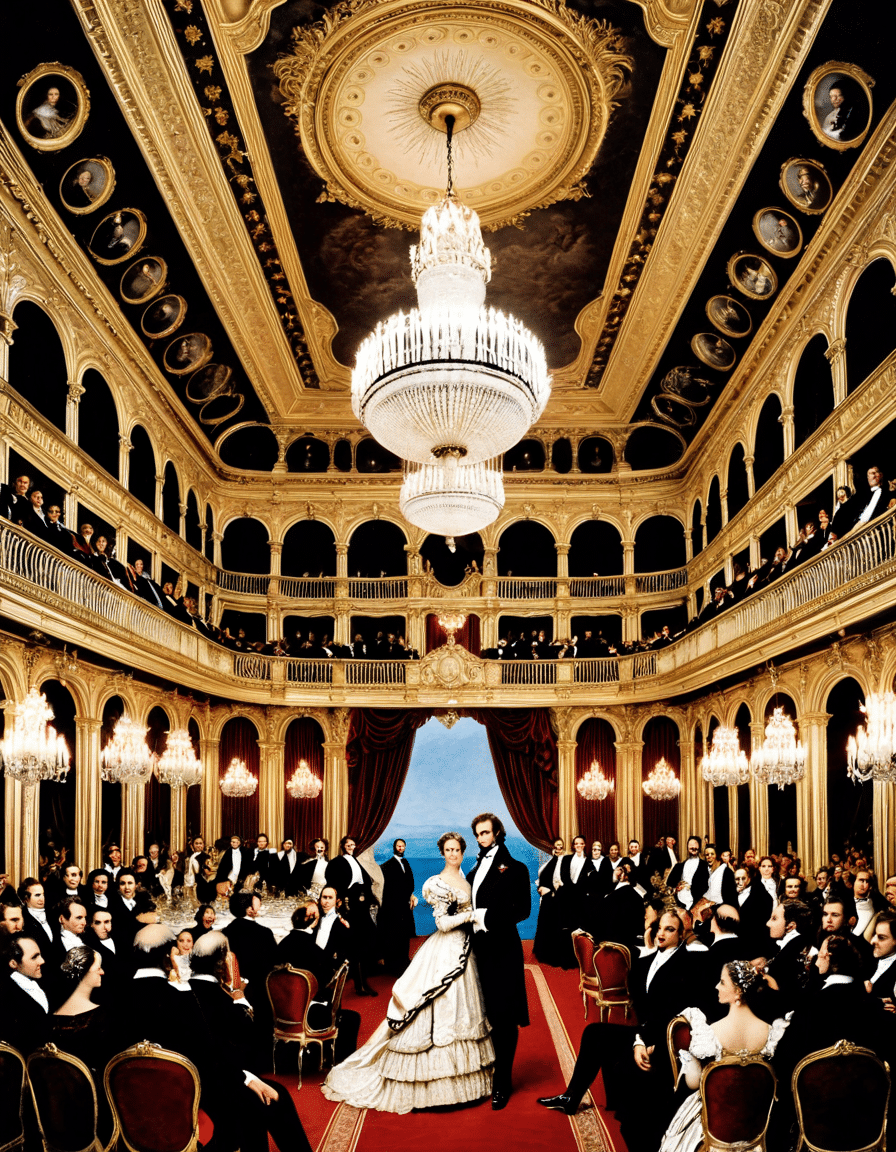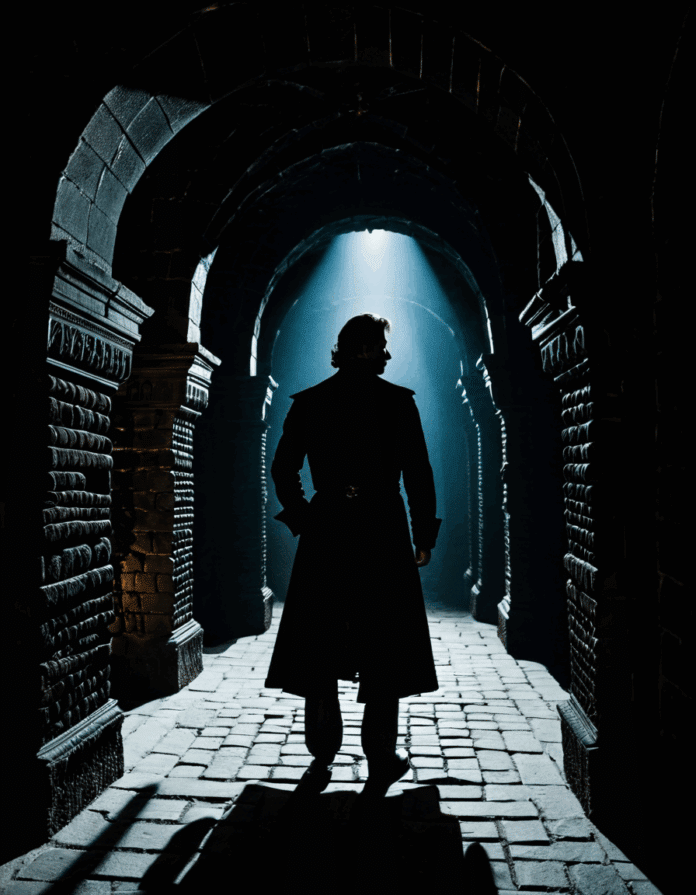The Count of Monte Cristo is more than just a classic tale; it’s a gripping exploration of human emotions, societal structures, and the relentless quest for justice. Penned by the illustrious Alexandre Dumas, this novel has mesmerized readers since its debut in 1844, and its impact continues to ripple across the landscape of modern cinema and literature. As we embark on this exploration of revenge and redemption in “Count of Monte Cristo,” let’s break down how these compelling themes intertwine throughout the narrative, making it resonate with audiences across the generations.

The Count of Monte Cristo: Top 7 Themes That Define the Story
The enduring legacy of The Count of Monte Cristo is rooted in a rich tapestry of themes. Here, we delve into seven pivotal themes that encapsulate the essence of this timeless story.
1. Betrayal and Trust
At the heart of Edmond Dantès’ transformation into the Count of Monte Cristo lies the gut-wrenching betrayal he suffers from those closest to him. This theme resonates deeply in modern narratives, like the political thriller House of Cards, where personal loyalty gets thrown under the bus for ambition. Who can forget how Frank Underwood’s cold, calculated moves leave friendship in the dust? Talk about betrayal!
2. Revenge
Imagine being wronged in the worst way and plotting your master revenge! Dantès’ desperate quest for vengeance against Fernand, Danglars, and Villefort forms the backbone of his character arc. His intricate plans showcase the extremes to which one might go to restore balance to their life, a bit like the characters in Quentin Tarantino’s Kill Bill, where revenge isn’t just a motive—it’s a way of life!
3. Redemption
Redemption plays a pivotal role as Dantès evolves from a man consumed by vengeance to one who learns the art of forgiveness. This transformative journey mirrors that of characters in the poignant film Atonement, where making amends for past mistakes becomes a lifelong quest. Isn’t it fascinating how the idea of forgiveness can set one free?
4. Fate and Free Will
Dumas weaves fate and free will intricately into the narrative, suggesting that while we might be swayed by the actions of others, it’s ultimately our choices that shape who we become. This motif shines brightly in The Shawshank Redemption, where characters take matters into their own hands, crafting fates from the fragments of their lives. The resilience is inspiring, don’t you think?
5. Social Class and Injustice
The stark divide between the privileged and the oppressed serves as a backdrop in The Count of Monte Cristo, echoing themes found in Les Misérables. The narrative drives home the need to challenge systemic injustices and fight for what’s right. This reminder that social discrepancies lead to personal struggles is as relevant today as it was in Dumas’ time.
6. Identity and Transformation
Dantès’ metamorphosis into the Count of Monte Cristo serves as a compelling examination of identity. Just look at Walter White from Breaking Bad—how circumstances can radically alter one’s identity reveals so much about human potential. One minute you’re a mild-mannered teacher; the next, a kingpin of crime. Life’s twists and turns are wild!
7. Isolation and Connection
Dantès’ journey highlights the loneliness that often accompanies power and wealth, suggesting that true fulfillment comes from building genuine connections. This theme resonates with films like The Pursuit of Happyness, where personal relationships shine as a beacon of hope amid adversity. In the end, aren’t we all searching for a connection?

Analyzing the Adaptations: The Count of Monte Cristo on Screen
The story of The Count of Monte Cristo has been adapted numerous times for the screen, offering diverse interpretations of Dumas’ timeless themes. Let’s take a closer look at some notable adaptations that have brought this legendary tale to life.
1. The 2002 Film Adaptation
Directed by Kevin Reynolds, the 2002 film stars Jim Caviezel as Edmond Dantès. This adaptation modernizes key elements while preserving the narrative’s core complexity. Caviezel’s intense portrayal elevates the emotional stakes, rendering Dantès’ journey toward revenge and redemption all the more poignant. The cinematography captures the sweeping adventure and raw emotion beautifully.
2. The 1998 TV Miniseries
This miniseries starring Gérard Depardieu immerses viewers in the historical context of the period, enabling a rich exploration of social injustices. The episodic format allows for a deeper dive into Dantès’ transformations and moral dilemmas, giving fans a chance to really connect with each character’s emotional state. If you’re up for a binge, this one hits home!
3. Animation and Graphic Novel Interpretations
Recent adaptations in animation and graphic novels provide fresh perspectives on Dumas’ work, appealing to younger audiences. Projects like the animated adaptation released in 2015 emphasize bright visuals and engaging storytelling. These adaptations allow the themes of vengeance and redemption to shine for a new generation, making the classic tale accessible and relatable.
4. Musical Adaptations
The stage musical adaptation of The Count of Monte Cristo brings a unique flair to the story, utilizing powerful songs that underscore Dantès’ emotional journey. Audiences find themselves captivated by the immersive experience as they resonate with the protagonist’s plight. With show-stopping numbers that echo through the theater, it’s a production that leaves a mark!
The Impact of The Count of Monte Cristo in Modern Culture
The shadow of The Count of Monte Cristo extends far beyond literature and film, spilling into various aspects of modern culture, influencing art, music, and conversations surrounding ethics and morality. Contemporary series like Peaky Blinders draw inspiration from its vengeful arcs, showcasing how foundational narratives continue to fuel creative minds.
Moreover, the lessons embedded within Dumas’ novel resonate in our socio-political dialogues today, addressing issues such as systemic injustice and the importance of empathy. It’s clear that The Count of Monte Cristo isn’t just a story; it’s a narrative that ignites discussions and reflections on justice and humanity.
In a world where tales of retribution often steal the spotlight, the balanced exploration of revenge and redemption found in The Count of Monte Cristo serves as a vital reminder. It invites readers and viewers to contemplate the ramifications of their choices, the scars left by betrayal, and ultimately, the liberating power of forgiveness.
Dumas’ journey reminds us that while life may throw us off course, we can always choose how to react. The Count of Monte Cristo is not merely a story; it’s a profound exploration of the human condition, one that deserves revisiting time and again. So, grab your popcorn, dive into the adaptations, or dust off the novel and let the journey begin—Edmond Dantès is waiting!
For more engaging content about movies and their adaptations like The Count of Monte Cristo, check out additional articles on Milton or see how Angela Simmons shines in the film world here. And why not explore the chaos of Attack on Titan finale here? Happy reading!
Count of Monte Cristo: Fun Trivia and Interesting Facts
A Story Born from Experience
Did you know the inspiration for Alexandre Dumas’ Count of Monte Cristo is rooted in real-life events? Dumas was influenced by the story of Pierre Picaud, a shoemaker who was wrongfully imprisoned. When he sought revenge after escaping, this tale became a legendary hook for Dumas’ work, blending fiction and reality in a way that resonates deeply with audiences. Speaking of tales, one fascinating adaptation is the animated version featuring characters reminiscent of those from Anne Of Green Gables, showing how classic stories can be reimagined for new generations.
The Many Faces of Edmond Dantès
The character of Edmond Dantès has been portrayed by numerous actors over the years, showcasing a wide range of interpretations. One notable adaptation is the 2002 film starring Jim Caviezel, which added new layers to Dantès’ journey for vengeance. But it’s not just film; Michael Imperioli, known for his remarkable performances in various movies and TV shows, also took on roles in adaptations of Dumas’ work, demonstrating the timeless nature of this captivating story. The Count of Monte Cristo even has its place in more contemporary pop culture; you might find echoes of its themes in the narrative of Black Sheep, where personal gripes lead to unexpected confrontation and redemption.
Treasure Hidden in the Pages
Beyond the tale itself, there’s rich history tied to Count of Monte Cristo. Did you know that the novel is filled with hidden references and nuances? For instance, Dumas often embedded social commentary within his storytelling, a trick similarly utilized in other famous works. It’s like finding gold in the pages! Meanwhile, various interpretations of treasure, much like the modern adventure lifestyle celebrated by brands like Huckberry, connect the age-old desire for wealth and status to the drive for revenge and personal transformation in the book. Lastly, even the name “Monte Cristo” brings to mind a connection to hidden identities and secret legacies—something that mirrors today’s fascination with personalities like Lewandowski, who redefine success in today’s society, paralleling the complexities faced by Dantès in his quest for justice.
Each of these facets not only enriches our understanding of the Count of Monte Cristo but also highlights its influence across various cultures and media over the years. Whether you’re a long-time fan or new to the story, there’s always something fresh to uncover!




